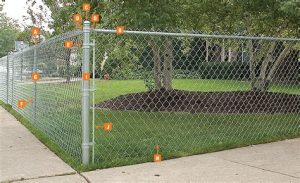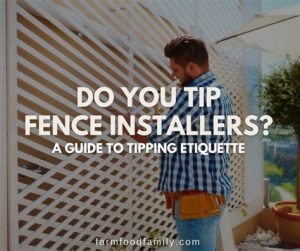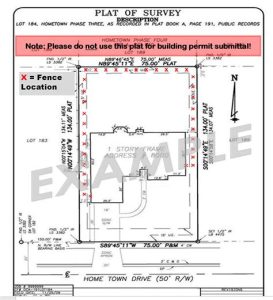Learn how to navigate local regulations for fencing, consult city officials, determine height requirements, choose materials, and submit your permit application effectively.When contemplating the installation of a fence around your pool, one of the first questions that comes to mind is whether or not you need a permit. The regulations surrounding pool fencing can vary significantly from one location to another, making it crucial to understand your local laws before diving in. Not only do many municipalities require permits to ensure safety and compliance, but they also have specific guidelines on fence height, materials, and design. In this blog post, we’ll navigate the essential steps to take, from understanding local regulations to consulting with city officials, determining the necessary fence height, selecting appropriate materials, and ultimately submitting your permit application. Protecting your pool area is not just about aesthetics; it’s about creating a safe environment for everyone. Let’s explore the important considerations to keep in mind during this process.
Understanding local regulations
When it comes to installing a fence surrounding a pool, it is essential to first understand local regulations. These regulations are often established by municipal governments to ensure safety, proper zoning, and aesthetics within the community. Ignoring these regulations may lead to penalties, increased costs, or the need to remove the fence entirely.
Many cities and towns have specific requirements related to pool fencing, including height, materials, and design. Typically, the fence must be tall enough to prevent children or pets from easily climbing over it. Some areas may even require a self-locking gate or specific types of fencing materials to enhance safety.
To ensure compliance with local regulations, property owners should consult the city’s zoning office or their website for guidelines. Failure to adhere to these rules can result in fines and complications when applying for building permits.
Consulting with city officials
When planning to install a fence around your pool, it is essential to consult with city officials. These officials can provide you with vital information on local codes and regulations that govern fencing around pools, ensuring that you remain compliant.
Before proceeding with your fence installation, gather information regarding the necessary permits and guidelines. In many areas, specific height and material requirements must be met for safety reasons. Local city officials can offer insights into these regulations, which may vary significantly from one jurisdiction to another.
Additionally, when engaging with city officials, consider asking about community standards or reviews if applicable. Some municipalities require public notifications or community engagement before installing a fence. By actively consulting with city officials, you can avoid potential fines and ensure the safety of your pool area.
Determining fence height requirements
When it comes to fencing around a pool, one of the key factors you must consider is the height of the fence. Not only does a properly heighted fence enhance the aesthetic appeal of your property, but it also plays a crucial role in ensuring the safety of pool users, especially children and pets. Therefore, it is essential to understand the regulations governing fence heights in your area.
Typically, the height requirements for pool fences vary from one location to another, often dictated by local building codes. In many jurisdictions, the minimum height for a pool fence is around 48 inches (4 feet). However, some regions may impose stricter regulations, necessitating a height of 60 inches (5 feet) or more. Thus, it’s important to check with local authorities to verify what rules apply in your case.
Moreover, some regulations may include additional stipulations, such as gates that must be self-closing and self-latching, as well as restrictions on climbable objects around the fence area. Being informed about these requirements can save you time and potential legal issues in the future, ensuring that your pool area is not only compliant but also safe for everyone.
Selecting appropriate fence materials
When it comes to enclosing a pool area, choosing the right fence materials is crucial for both safety and aesthetics. Strong materials not only enhance security but also contribute to the overall appearance of your outdoor space.
- Vinyl Fencing: Durable and low-maintenance, vinyl fencing offers a variety of styles and colors, ensuring a seamless fit with your home. It is also resistant to rotting, warping, and fading.
- Aluminum Fencing: Known for its strength and lightweight nature, aluminum fencing provides a sleek and modern look while being resistant to rust and corrosion.
- Wood Fencing: Classic and versatile, wood fencing can be customized in various styles. It’s essential to choose treated wood that can withstand moisture and other environmental factors.
- Glass Fencing: Offering an unobstructed view, glass fencing adds a touch of luxury to pool settings. While it can be more expensive, it creates a modern and elegant appearance.
- Chain Link Fencing: A budget-friendly option, chain link fences are durable and can be enhanced with privacy slats for added security and seclusion.
When selecting materials, consider factors such as strength, maintenance requirements, aesthetic appeal, and compliance with local regulations. Furthermore, consulting with professionals can help in selecting the most appropriate materials based on your specific needs and the overall design of your pool area.
Submitting permit application
Once you’ve gathered all the necessary information and ensured that your planned fence complies with local regulations, the next critical step in ensuring your fence surrounding a pool is legal is submitting the permit application. Depending on your location, the requirements for this application can vary significantly, so it’s essential to be thorough.
To begin with, you’ll need to collect detailed documentation about your planned fence. This often includes site plans, showing the exact placement of the fence in relation to the pool and property lines. Many municipalities may require you to include information such as the fence height, type of materials used, and the purpose of the fence. It’s also advisable to consult your local zoning office to identify any specific norms or restrictions that may apply to your application.
After gathering the necessary documents, complete the permit application form—this may be available online or at local government offices. Ensure that all the information provided is accurate. Incomplete or incorrect applications can lead to delays or even a rejection. Once submitted, you can typically expect a waiting period while the local officials review your application.
Frequently Asked Questions
Is a permit required for installing a fence around a pool?
Yes, in most areas, a permit is required to ensure safety standards are met to protect against accidental drownings.
What are the general requirements for a pool fence?
Typically, a pool fence should be at least 4 feet high, have no gaps larger than 4 inches at the bottom, and have a self-closing gate with a secure latch.
How can I find out the specific regulations for a pool fence in my area?
You should check with your local building department or zoning office, as regulations can vary from one municipality to another.
What are the penalties for not having a permit for a pool fence?
Penalties can vary but may include fines, a requirement to remove the fence, or being liable in the event of an accident.
Can I install a pool fence myself, or do I need a professional?
While you can install a pool fence yourself if you comply with the regulations, hiring a professional may ensure proper installation and adherence to local laws.
Are there special considerations for removable pool fences?
Removable pool fences may have different guidelines; you should verify with local regulations to see if they are permitted and what safety features are required.
What types of materials are suitable for a pool fence?
Popular materials for pool fences include wood, vinyl, aluminum, and wrought iron, all of which offer different aesthetics and levels of security.




